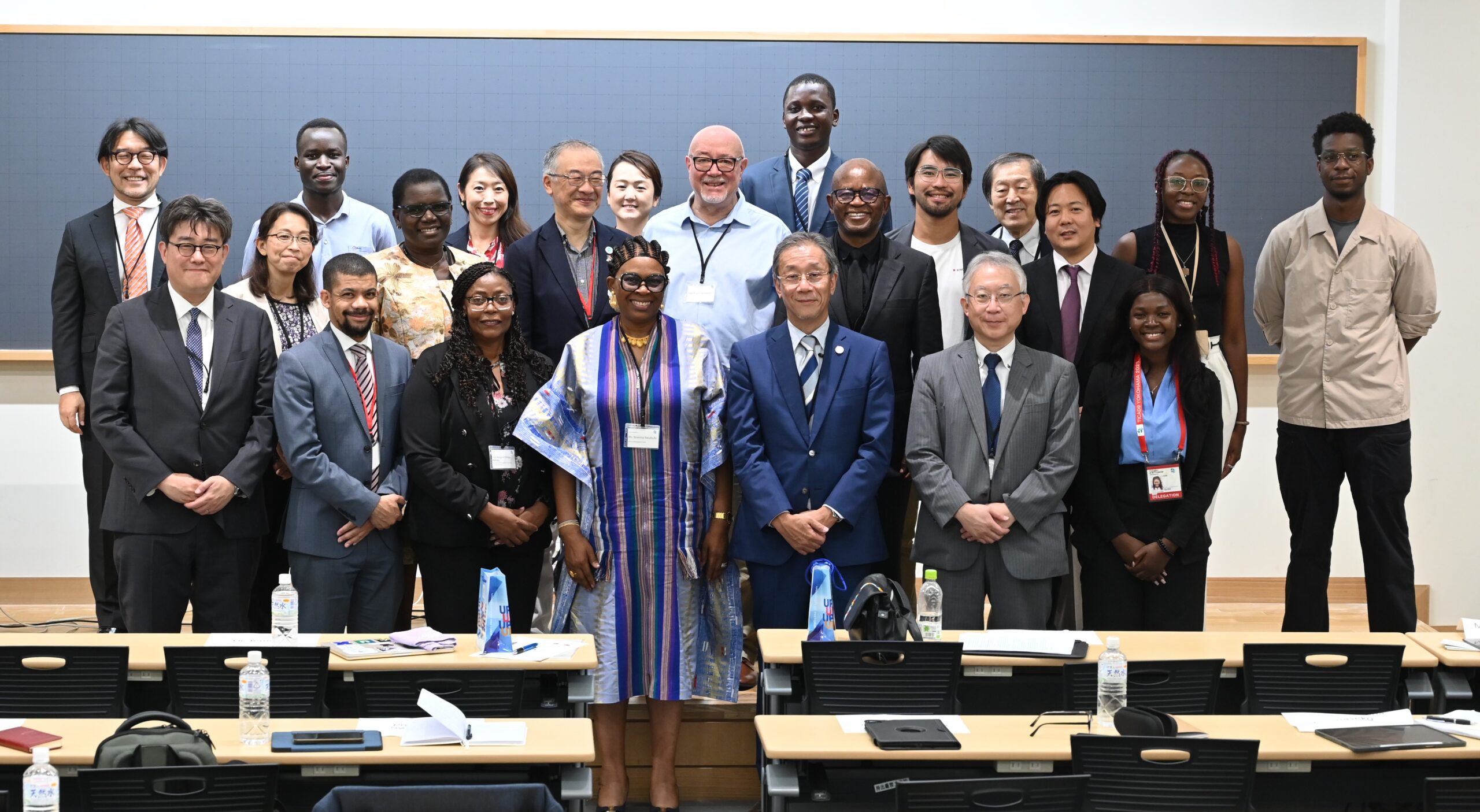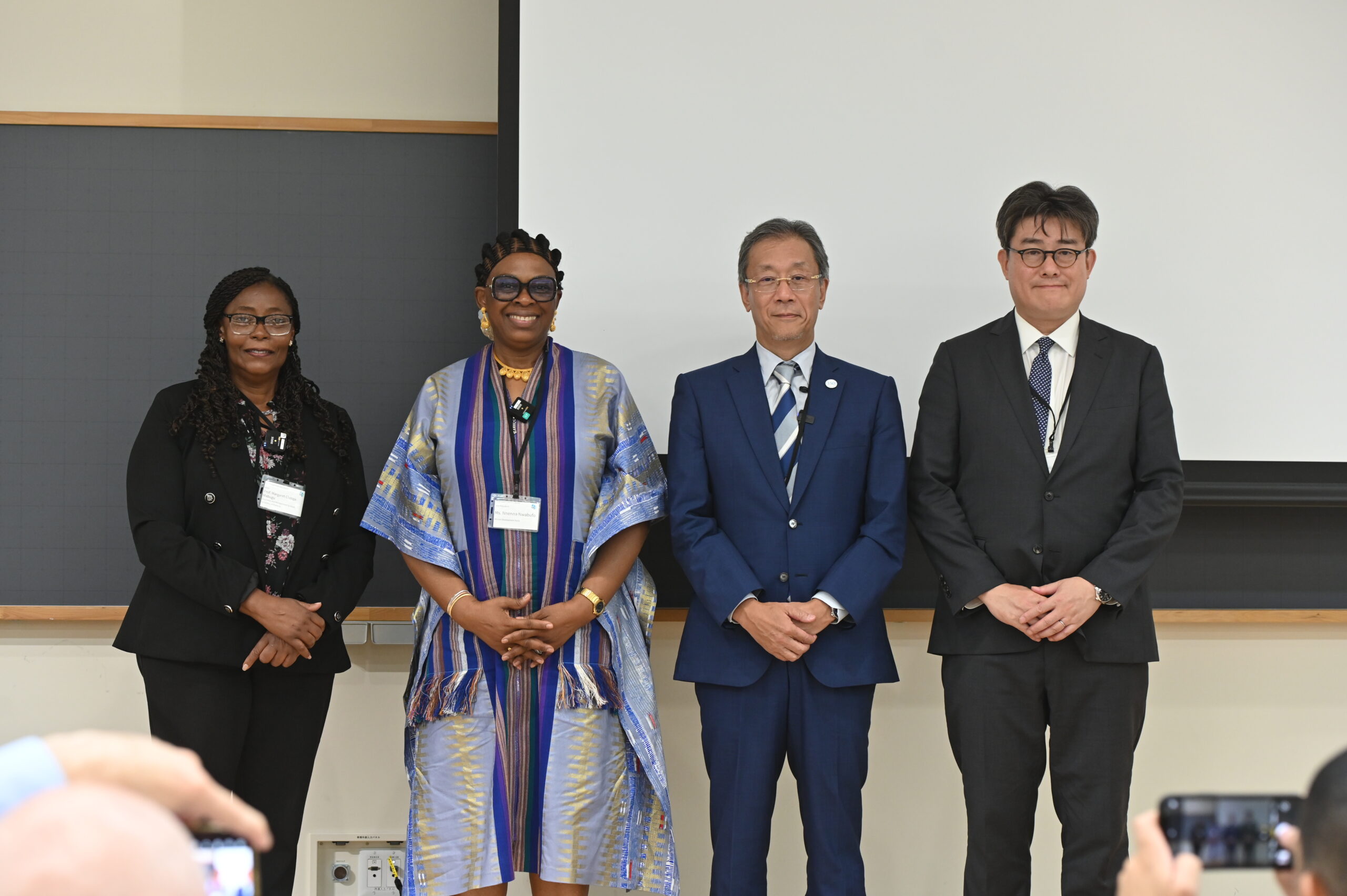By Etienne Mainimo Mengnjo
Nnenna Nwabufo, Vice President for Regional Development, Integration, and Business Delivery at the African Development Bank, AfDB, has stressed the vital role of universities in Africa’s development. She said the bank is committed to supporting these institutions as centers of innovation that can attract both bank financing and private investment.

Nwabufo made her remarks during a symposium held Saturday, Aug. 23, on the sidelines of the Ninth Tokyo International Conference on African Development (TICAD9). The event was organized by the University of Tokyo and co-hosted by the University of Pretoria in partnership with the African Development Bank.
Titled From Campus to Community: University Collaboration Between Africa and Japan for Real-World Change, the symposium focused on how academic partnerships between Africa and Asia can create new opportunities for collaboration and progress.
“As Africa’s leading development finance institution, the African Development Bank views universities as essential allies—not only as educational centers but also as drivers of innovation, entrepreneurship, and societal transformation,” Nwabufo said in her keynote address.
“The bank believes that Africa’s future depends on strong, empowered universities that evolve from mere knowledge producers to active agents of change,” she added.
Keynote addresses were also delivered by Dr. Teruo Fujii, president of the University of Tokyo, and Dr. Francis Petersen, vice chancellor and principal of the University of Pretoria. Petersen’s remarks were presented by Prof. Margaret Chigita-Mabugu, dean of the Faculty of Economic and Management Sciences at the University of Pretoria. Both speakers highlighted the importance of collaboration through diverse voices, innovative partnerships, and the social impact of Africa-Japan cooperation.
The audience heard from two expert panels that explored the role of universities in fostering entrepreneurship and innovation through collaboration between Africa and Asia.

Professor Frans Swanepoel, head of the Wits School of Governance, stressed the need for skills development in a continent with a youthful population. “Education plays a critical role in what you can achieve as an entrepreneur,” he noted.
Hendrina Droba, division manager for education, human capital, and employment at the African Development Bank, cited examples of how university partnerships for youth and innovation are central to the bank’s new 10-year strategy. One standout initiative is the Japan Africa Dream Scholarship.
Mary Yeboah Asantewaa of Ghana, a recipient of the scholarship, shared how it opened career pathways leading to her current role in healthcare, where she uses innovative drone technology to combat malaria.
The African Development Bank is committed to harnessing the potential of universities through five key strategies: integrating universities into investment programs to ensure their involvement in national development and industrialization projects supported by the bank; financing skills and innovation ecosystems; fostering university-industry partnerships to transform universities into co-creators with the private sector; supporting entrepreneurship hubs and technology parks within universities; and establishing knowledge-sharing platforms that allow universities to showcase their innovations and attract investment.
The Japan Africa Dream Scholarship, launched in 2017, is a capacity-building initiative by the African Development Bank and the Government of Japan. It offers high-achieving African students a two-year scholarship to pursue postgraduate studies in energy, agriculture, health, environmental sustainability, and engineering. To date, 41 students have received full scholarships, with 27 attending Japanese partner universities and 14 at African partner universities.
“I am pleased to announce that the University of Tokyo is a partner in this initiative,” Nwabufo said. “Collaborations between African and Japanese universities are vital for strengthening long-term partnerships between Africa and Japan, as today’s African trainees are tomorrow’s leaders.”


